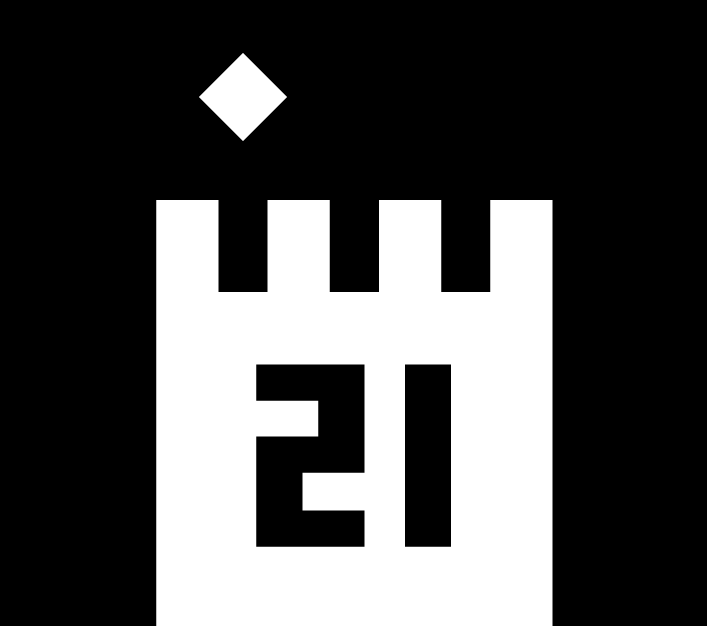The United States of Bitcoin
by Mark Van Houten | Mar. 21st, 2023 | vol.21
Bitcoin can accomplish what the United States Constitution could not.
For the whole world.
Imagine the first paragraph of the “Declaration of Independence” written thus:
“The unanimous declaration of the Earth’s adopters of Bitcoin as money, When in the course of human events, it becomes desirable for many to dissolve the monetary bands which have connected them with a specific central bank, and to adopt among the powers of the earth, the separate and superior currency to which the Laws of Nature and of Nature’s God entitle them, a decent respect to the opinions of mankind requires that they should declare the causes which impel them to the separation.”
Despite all the checks and balances in the Constitution, States remained fearful that a centralized government would grow and become tyrannical. New York, the antepenultimate State to join the union, was perhaps the most difficult to convince. James Madison helped to convince them. He wrote in Federalist No. 45 that the powers of the federal government are enumerated, “few and defined,” and those reserved to the several States are “numerous and indefinite.”
So fearful were the States of usurpation of their decentralized power that they insisted on an amendment that reinforced their sovereignty. The Tenth Amendment to the Constitution, the last of those that constitute the Bill of Rights, reads: “The powers not delegated to the United States by the Constitution, nor prohibited by it to the States, are reserved to the States respectively, or to the people.”
The Constitution is the operating system of the United States of America. Had it been possible to ensure adherence to the Constitution in a permissionless and trustless manner, it would have remained a decentralized system of government (a Constitutional Republic) that would have accomplished its goal of a government, as President Lincoln stated it, “of the people, by the people, for the people.” A new operating system is required to achieve that goal.
Enter bitcoin.
The Seventeenth Century philosopher, John Locke, stated that the “Laws of Nature and Nature’s God” are the foundation of an individual’s right to life, liberty, and property. The United States of America was founded on the belief that a government’s only legitimate purpose is to protect those rights. But a level of trust is required that has been defied.
Great news: These natural laws no longer depend on undependable humans collectively agreeing to uphold them. They are built into the Bitcoin protocol. Henceforth, it is in our best interest to adhere to the Bitcoin mantra: Don’t trust; verify.
The protocol is decentralized. The Bitcoin blockchain network is secured by tens of thousands of individuals and companies around the globe with computing systems. No government or any other centralized authority can locate, let alone stop or destroy, every such system securing the network. Even if a country banned the use of bitcoin, its citizens could not be prevented from using it. They could only be barred from using their nation’s payment rails for the purchase or sale of bitcoin.
The protocol is permissionless. Anyone can send money to anyone else anywhere in the world, and they to you, with no country, no bank, nor any other entity or person involved. This is done trustlessly. The tens of thousands of computers verify that you possessed a given amount of money, you sent a given amount of money to another, and that other received it. There are no thoughts or opinions about it. Finally, unlike the Constitution, the transaction and its meaning are immutable, undeniable, empirically verifiable.
Since America’s inception we have seen a slow but steady powershift, from the sovereignty of the individual, back to the state. Through Bitcoin there has begun a powershift in the whole world to the sovereignty of the individual. Nigerians are keeping their monies out of the hands of their confiscatory leaders by storing it in Sats, Venezuelans can obtain life’s necessities via the Bitcoin protocol. Argentinians and Lebanese and Sri Lankans and Zimbabweans can circumvent the devaluation of their local currency by saving in bitcoin. Women in many Muslim countries are forbidden to earn a wage. Now they can earn Sats unnoticed, as they perform online work such as editing, writing, billing, etc.
No one knows exactly how this ultimately will change the contours of the geopolitical world; that is up to the people with the power. The States of America retain enough decentralization to date to give us a clue: Individuals and companies in States with confiscatory taxation and punitive business regulations are migrating. Residents of California, Illinois, New Jersey, and New York are fleeing to Arizona, Idaho, Wyoming, Florida, Tennessee, and Texas. Miami mayor Francis Suarez understands this and is doubling down on it. He is seeking to embrace bitcoin in the operations of the city.
Some other cities that have embraced bitcoin are Vancouver, Amsterdam, Lugano, Zurich, Ljubljana, Tel Aviv, Buenos Aires. An entire country, El Salvador, has adopted bitcoin as legal tender. (How apropos that the first country to accept bitcoin as legal tender is The Republic of the Savior!) There will be a Rubik’s Cube of emigration and migration over the coming decades before we will be able to discern the geopolitical structure deemed acceptable to newly sovereign individuals.
America’s Constitution would have worked had its decentralized power been trustless, permissionless, and immutable. Those attributes are at the core of Bitcoin’s constitution. Therefore, Bitcoin stands to accomplish more than the objective of the Constitution of the United States.
Whether it will be city-states around the globe, or a set of countries around the world, or a network of heretofore unimagined entities, those collectives will constitute The United States of Bitcoin.
Mark Van Houten is a bitcoin maximalist. He believes toxicity is moot because bitcoin is the gift of freedom no sane person ultimately will deny.


